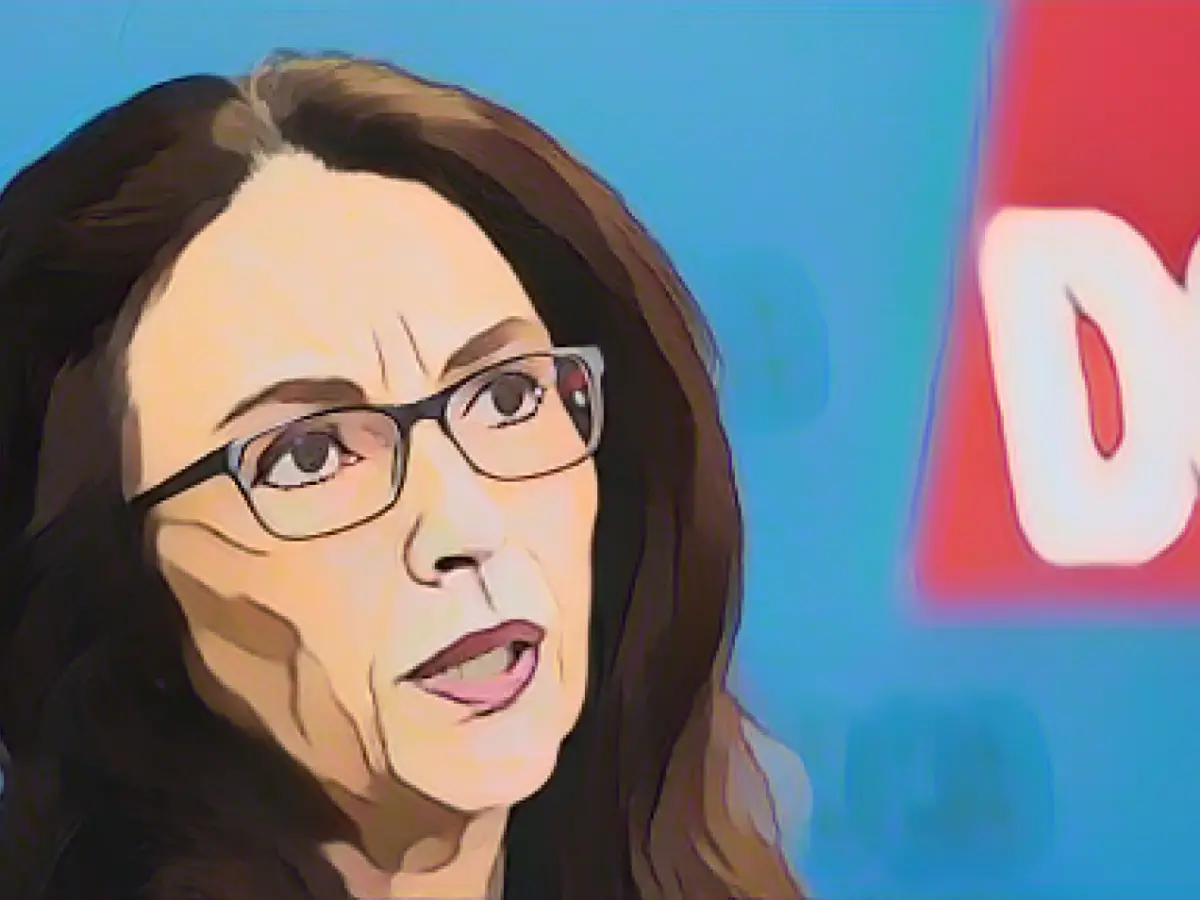Economic policy - DGB boss worried about industry
According to the German Trade Union Confederation (DGB ), industry and employees in Germany are facing another crisis-ridden year at the turn of the year. "The situation is anything but relaxed," DGB head Yasmin Fahimi told the German Press Agency in Berlin. "We are still in a crisis."
For many people, it has become more difficult to make ends meet. "They have had to accept a real loss of income." This is particularly true for employees without the protection of a collective agreement. "Many also fear that their jobs are no longer secure."
DGB is concerned about the basic industry
Fahimi said: "The energy-intensive industries are particularly affected by this - the entire basic materials industry from the chemical industry to aluminum, iron, copper, steel, cement, paper and glass." There are currently no signs that this will change in 2024.
Fahimi criticized the fact that the federal government has already allowed the state gas and electricity price brakes to expire at the end of the year as a reaction to the budget ruling from Karlsruhe and not at the end of March as originally planned. "It is regrettable that the government has not agreed to extend the electricity price brake," said the trade unionist. "That would have helped."
"Location no longer attractive"
However, even companies that are not so extremely dependent on energy prices often no longer consider Germany to be a really attractive location. "The critical issues are the lack of skilled workers, the inadequate level of digitalization, but also doubts as to whether we will succeed in the transformation, especially in the energy sector," said Fahimi.
In view of the government's austerity measures as a result of the Karlsruhe ruling on the federal budget, Fahimi warned that billions should not be foregone on investments. "This applies to social infrastructure, i.e. schools and daycare centers, the care and healthcare system, roads and all forms of mobility." At the same time, the economy and society must be restructured in a climate-neutral way.
"This includes, for example, the expansion of power lines and the development of hydrogen networks. This includes new gas-fired power plants as a reserve if the sun and wind do not provide enough electricity. But it also includes investing in an attractive public mobility system that also connects rural areas in a meaningful way." Fahimi therefore reiterated her call for the debt brake to be reformed. At the very least, however, the government should set up a special fund for investment in infrastructure.
Read also:
- Why there is still no EU funding for green Saar steel
- 3 billion Saar Fund is unconstitutional
- Lack of snow also opens up new opportunities for winter tourism
- Abrupt end to e-car subsidies
- The DGB head, Yasmin Fahimi, expressed concern about the upcoming year being another crisis-ridden period for the German industry and its employees.
- Fahimi pointed out that energy-intensive industries like aluminum, iron, copper, steel, cement, paper, and glass are particularly affected and there are no indications of improvement in 2024.
- The German Press Agency reported in Berlin that Yasmin Fahimi criticized the federal government for allowing the state gas and electricity price brakes to expire at the turn of the year, despite the Karlsruhe ruling.
- Many companies are no longer finding Germany an attractive location due to factors such as the dearth of skilled workers, inadequate digitalization, and doubts about the success of the transformation, particularly in the energy sector, according to Fahimi.
- Fahimi urged against foregoing billions in investments due to the government's austerity measures following the Karlsruhe budget ruling, emphasizing the need for investments in social infrastructure, healthcare, and mobility for a climate-neutral restructuring of the economy and society.
- In relation to the investments needed for a climate-neutral future, Fahimi proposed measures like expanding power lines, developing hydrogen networks, setting up new gas-fired power plants, and investing in a comprehensive public mobility system that also benefits rural areas.
- The German Press Agency reported from Berlin that Fahimi once again advocated for reformation of the debt brake or the establishment of a special fund for infrastructure investment to support Germany's economic and social transition.
Source: www.stern.de








